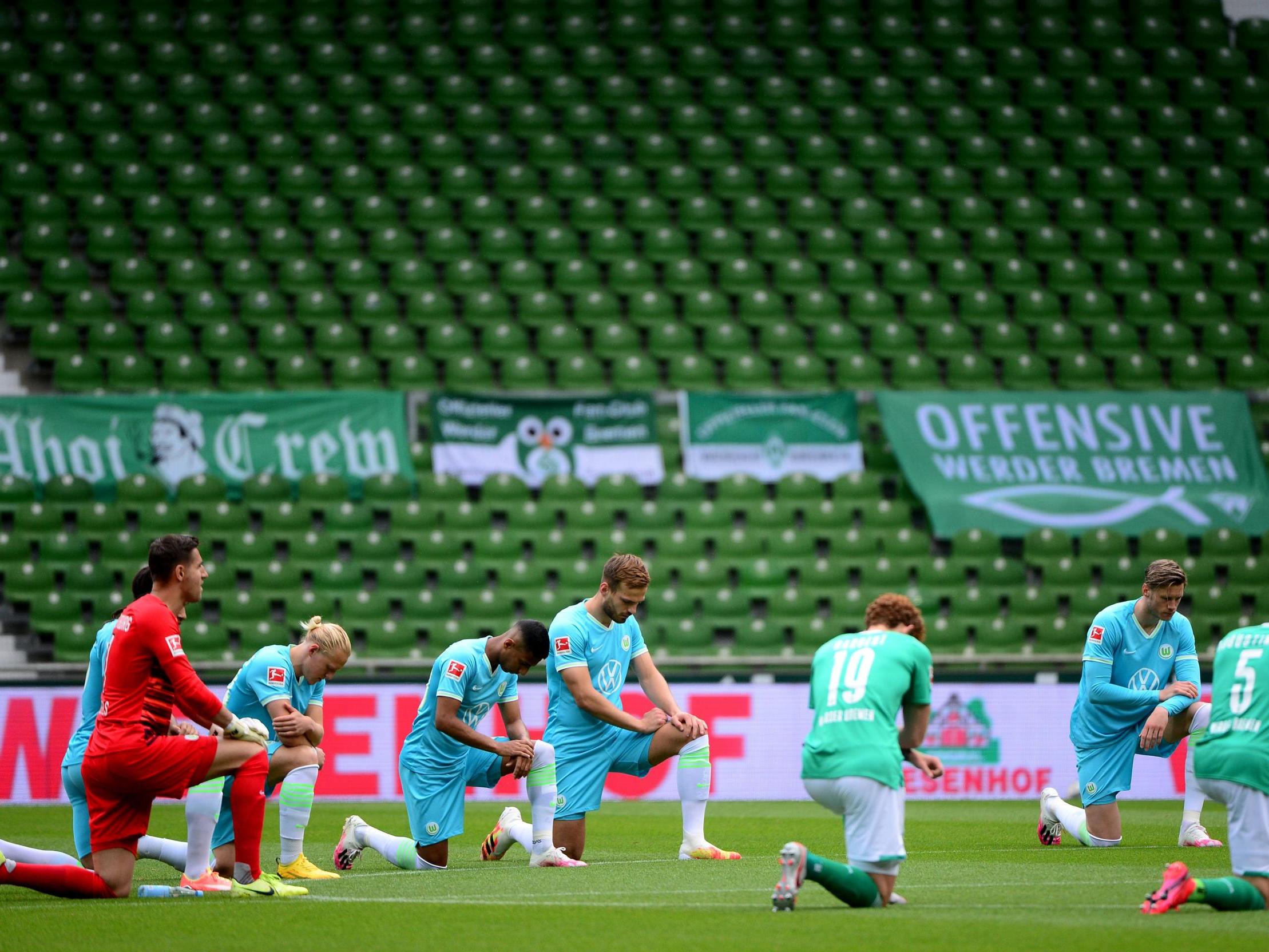IOC confirm athletes face bans for taking knee at Tokyo 2021 Olympics and Paralympics
The governing body has decided to maintain guidelines despite several sports moving to allow protests in the wake of George Floyd’s death

Your support helps us to tell the story
From reproductive rights to climate change to Big Tech, The Independent is on the ground when the story is developing. Whether it's investigating the financials of Elon Musk's pro-Trump PAC or producing our latest documentary, 'The A Word', which shines a light on the American women fighting for reproductive rights, we know how important it is to parse out the facts from the messaging.
At such a critical moment in US history, we need reporters on the ground. Your donation allows us to keep sending journalists to speak to both sides of the story.
The Independent is trusted by Americans across the entire political spectrum. And unlike many other quality news outlets, we choose not to lock Americans out of our reporting and analysis with paywalls. We believe quality journalism should be available to everyone, paid for by those who can afford it.
Your support makes all the difference.The International Olympic Committee (IOC) has confirmed that athletes are still banned from protesting at the Olympic Games after several sports moved to allow protests in the wake of George Floyd's death in police custody.
Rule 50 of the Olympic Charter states "no kind of demonstration or political, religious or racial propaganda is permitted in any Olympic sites, venues or other areas."
Athletes who breach the rule are subject to discipline on a case-by-case basis and the IOC issued guidelines in January clarifying that banned protests include taking a knee and other gestures.
The IOC told the Telegraph the guidelines were still in place and that it would not speculate on "hypothetical cases 13 months before the Olympic Games".
Floyd, a 46-year-old African-American man, died after a white Minneapolis police officer pressed his knee into Floyd's neck for nearly nine minutes on May 25.
His death sparked worldwide protests against racial injustice, with several soccer players in Germany's Bundesliga delivering their own messages of support during games.
World governing body FIFA, which has shown zero tolerance for players expressing their views on the field, has asked competition organisers to use "common sense" regarding protests over Floyd's death.
NFL Commissioner Roger Goodell, who was widely criticised for the league's handling of Colin Kaepernick's kneeling protests in 2016, said on Friday the NFL had made mistakes in not listening to players and encouraged them to speak out and "peacefully protest".
Anti-racism movements are expected to be discussed at an IOC executive board meeting on Wednesday.
While athlete protests at the Olympics are rare, at the 1968 Mexico City Games black U.S. sprinters Tommie Smith and John Carlos bowed their heads and raised black-gloved fists on the podium to protest racial inequality.
At Rio 2016, Ethiopian marathon runner Feyisa Lilesa raised his arms and crossed his wrists when crossing the finish line to show support for his Oromo tribe's protests over government plans to reallocate farmland.
Reuters
Join our commenting forum
Join thought-provoking conversations, follow other Independent readers and see their replies
Comments